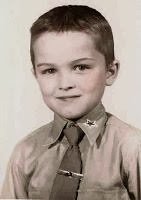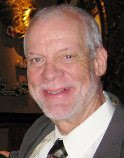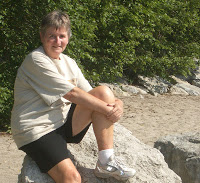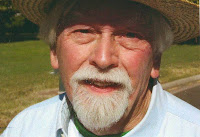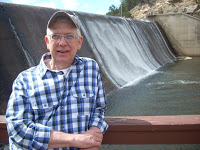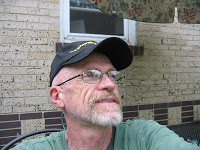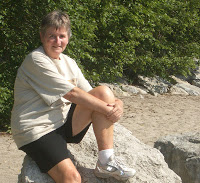Me? Quirky? I don’t think so. I’m perfectly normal in every way even for a gay guy. Very nondescript, average looking, wonderful personality (so I’ve been told and I choose to believe it) and nothing quirky about me. So, I felt very secure in asking my oldest daughter if she thought there was anything quirky about me; knowing all along that she couldn’t think of anything even if she thought more than her 30-second attention span for caring about anything I say.
Apparently, it was a case of me not seeing the forest because the trees were in the way; or (as the Bible puts it in Matthew, Chapter 7) a case of “mote” “beam” sickness. Let’s see if I can remember accurately. My daughter thought for all of 3 seconds and came up with “The Lord of the Rings”.
Apparently, every time we have guests over I always ask them at some point if they like to read books and if so what type. (My daughter keeps track of these things somehow; I don’t keep count.) Not long after the topic of books and movies turns up, someone, not always me, will bring up “The Lord of the Rings”; at which time a 15 to 30 minute discussion of the book and movie will follow. My daughter has grown very tired of hearing it over and over.
The last time it happened was two weeks ago. She had invited the church missionaries over for dinner. I was on my way home from somewhere and called to let her know. She informed me that the missionaries were there for dinner so I asked if I was invited or should I eat before I came home. She told me to come on home. She told us all later, that at this point she wanted to add that I could come home to eat, if I did not talk about “The Lord of the Rings” but she did not say it. I came home. We all sat down to eat and during the small talk, my daughter asked one of the missionaries where he lived and went to school. He replied, “Sacramento.” My daughter thought to herself, “Oh no.” I said, “I went to college in Sacramento.” When asked where I replied, “Sacramento State College” and I flunked out after two semesters. (My daughter is now screaming in her head, “No. No. Nooooo.) When asked why did I flunk out, I couldn’t lie so I said because my English 101 teacher made us read “The Lord of the Rings.” After the ensuing 20 minute discussion, my daughter told us what she did not tell me when I called and then she said, “and I ended up giving the lead-in question to the topic I hate.” I think my daughter is the quirky one.
I’m sure I’m not quirky, but quirky things seem to go on around me. For example, my daughter’s mother-in-law, Maria, was raised on a collective farm in the old Soviet Union. As a result, she has worked all her life. When she came to live with us no one asked her to help around the house but she doesn’t know how to be “retired”. So, she is constantly cleaning, cooking, doing laundry (until the washer broke), and generally being every man’s ideal housewife. When she does want a private time, she goes to our old tool and garden shed where she has made herself what I call a “nest”; goes in and hides. It’s rather cozy actually, but she is the quirky one.
Maria’s husband, Gari, who also lives with us, is a bit quirky or maybe just eccentric. He walks ¾ of a mile to the grocery store and back and generally ignores the traffic signs for walk and don’t walk; at least until last month when he did it in front of Lakewood’s “finest” and received a $79 ticket for walking across the street at an intersection against the don’t walk sign. That’s the first time I’ve ever heard of someone getting what is essentially a jay-walking type citation. I don’t know if he is quirky or if it’s just the situation that’s quirky.
My daughter’s husband and Maria’s son, Artur, is rather quirky. Today when I told him that our Himalayan cat was pregnant he became his quirky self. At first anger stating that he would throw her out and then a few seconds later he demanded we get the cat an abortion. When my daughter pointed out that he always had said he wanted the cat to have kittens, he responded that it was true but not by an alley cat (paraphrased). Once it was explained that the father was ½ Persian or ½ Himalayan he calmed down a bit. In a day or two he will be fine with the situation—that’s his quirk. In fact, we don’t know for sure who the father is. The only cat we’ve seen in her company was the one we mentioned. I also will not tell him that on the weekends when he and his mother are gone all day, I repeatedly let the cat out knowing she was in heat. I did it for two reasons. I got tired of listening to the cat yowling and I like kittens. Maybe that’s my quirk.
© 17 Apr 2012
About the Author
I was born in June of 1948 in Los Angeles, living first in Lawndale and then in Redondo Beach. Just prior to turning 8 years old in 1956, I began living with my grandparents on their farm in Isanti County, Minnesota for two years during which time my parents divorced.
When united with my mother and stepfather two years later in 1958, I lived first at Emerald Bay and then at South Lake Tahoe, California, graduating from South Tahoe High School in 1966. After three tours of duty with the Air Force, I moved to Denver, Colorado where I lived with my wife and four children until her passing away from complications of breast cancer four days after the 9-11 terrorist attack.
I came out as a gay man in the summer of 2010. I find writing these memories to be therapeutic.
My story blog is TheTahoeBoy.Blogspot.com
